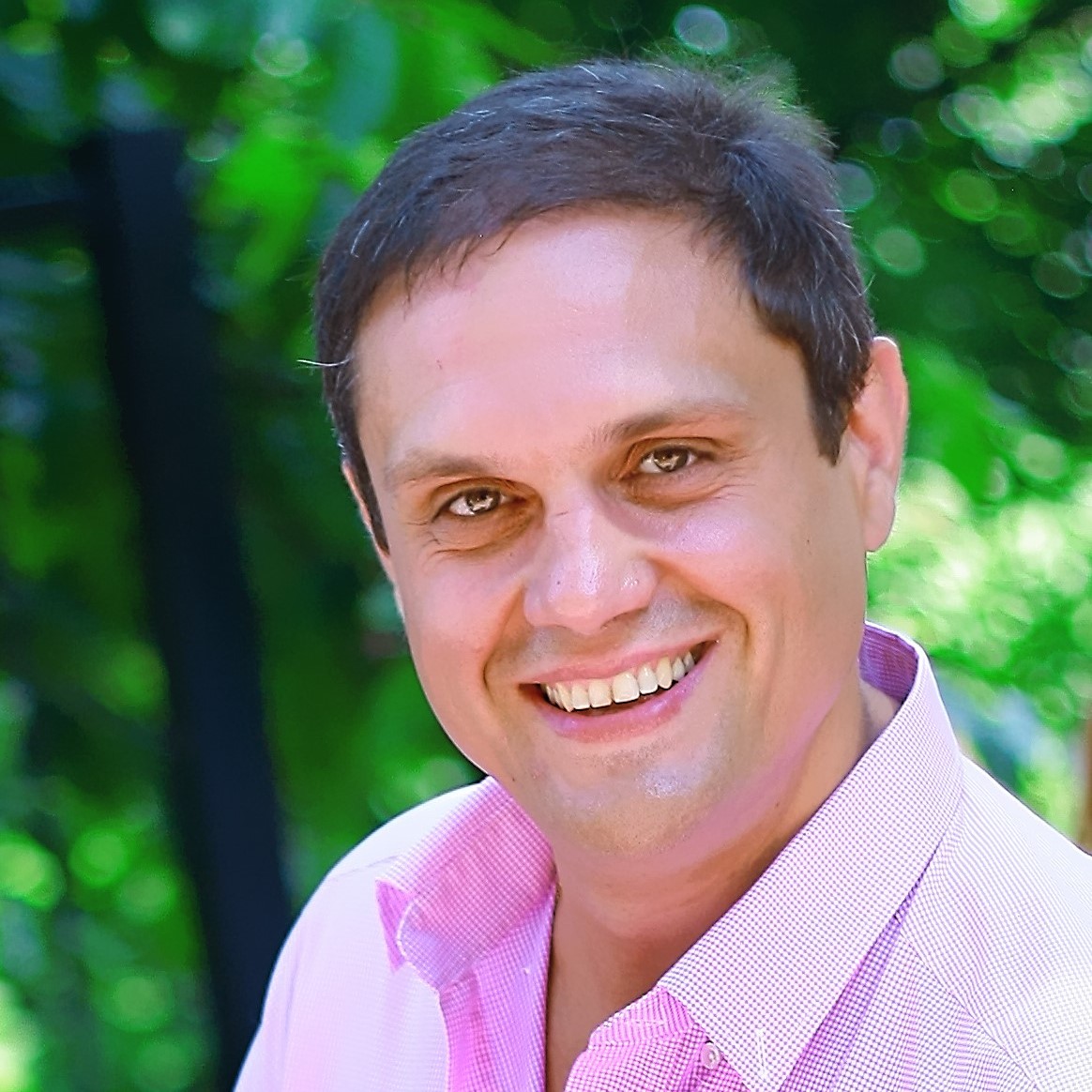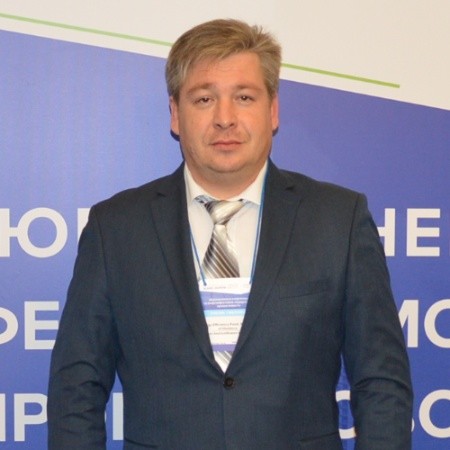R.com
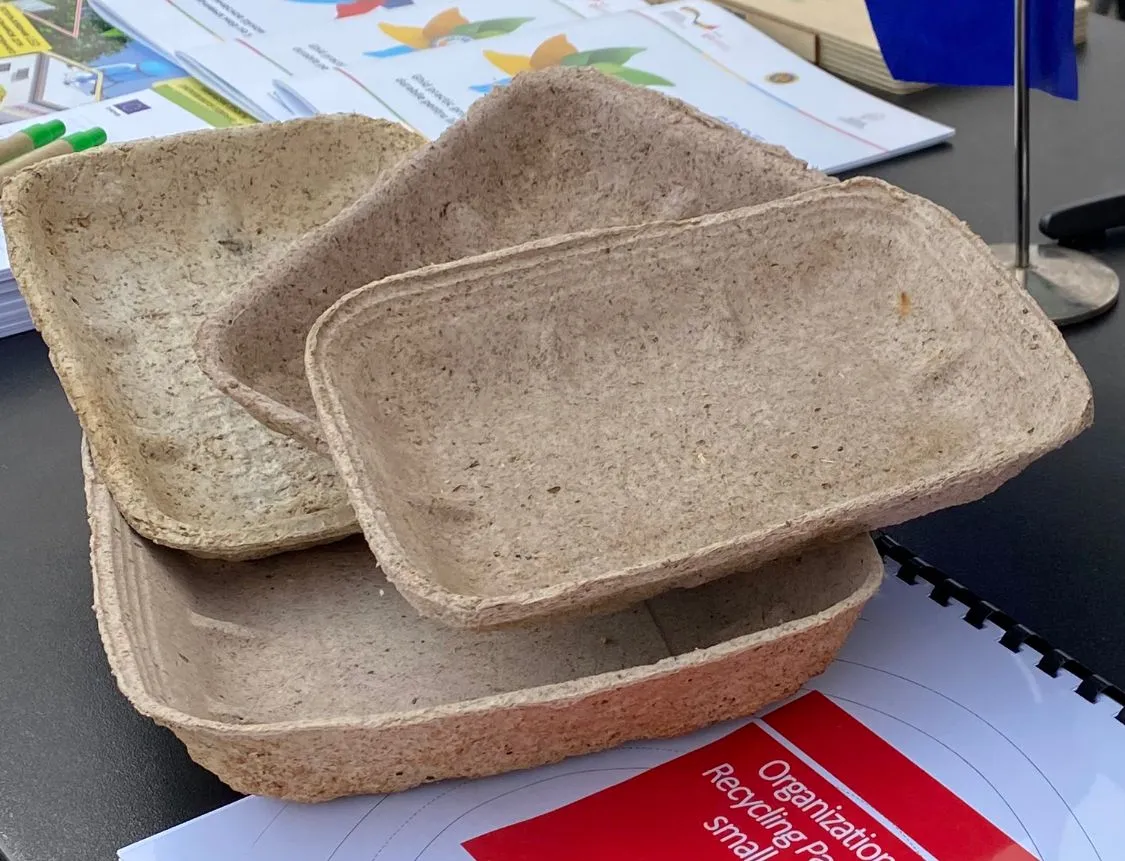
Key Highlights
-
 Technology Waste Utilisation
Technology Waste Utilisation -
 Technology Solar
Technology Solar -
 Country Moldova
Country Moldova -
 Business type Greenfield
Business type Greenfield
- 867 Investment amount (grant) (USD millions)
- 0.47 Installed capacity (MW)
- 21 Project IRR (%)
-
Regional Coordinator

In the small Eastern European country of Moldova, a double waste mountain has been piling up. Clothing represents 12% of Moldovan exports [1] but cotton waste from textile factories is not recycled. Meanwhile, the use of plastic is rising by 4% a year and just 7% is recycled, according to a report [2] for the United Nations Development Programme (UNDP).
But entrepreneur Dmitry Rovner has an idea that can solve both these problems and lower costs for retails, while making 20% return on investment. His factory will transform the waste from cotton production into packaging for fruit and vegetables, it can be moulded into any shape, and degrades naturally.
“Usually we import plastic for packaging from Romania and the Ukraine. But this will be made in Moldova, and will eliminate clothing waste and at the same time decrease the amount of plastic used for product packaging,” says Piotr Comarov, PFAN advisor.
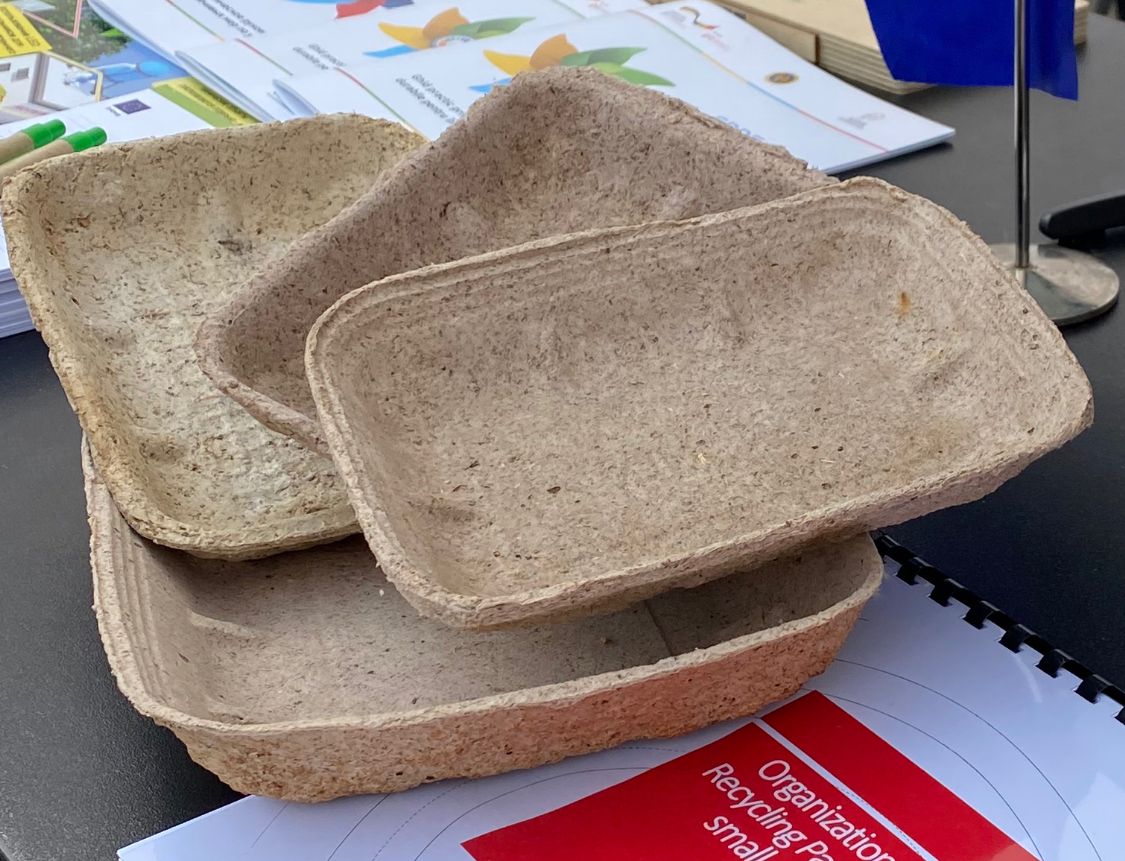

“Usually we import plastic for packaging from Romania and the Ukraine. But this will be made in Moldova, and will eliminate clothing waste and at the same time decrease the amount of plastic used for product packaging”
PFAN was attracted to the project due to its multi-faceted benefits for the environment, and the local economy, Comarov says. In addition to its potential to reduce plastic and cotton waste, the packaging – known as Co-Pack – will be manufactured in a factory powered by solar energy, and the jobs will support 30 families in the local town.
In addition, production of the packaging will save up to 70% of electricity, up to 90% of water and up to 75% of CO2 emissions, compared with the production and disposal of plastic packaging.
“It is a very interesting project covering a lot of fields – we have renewable energy, and use of waste, and very good gender and social situation,” he says.
Around 20% of the packaging will be bought by the domestic market, and R.Com already has agreements in place with several customers. As well as having environmental benefits over plastic, R.Com’s packaging is also cheaper for retailers, at USD 50 per 1,000 units compared with USD 52 for the same amount of polystyrene packaging.
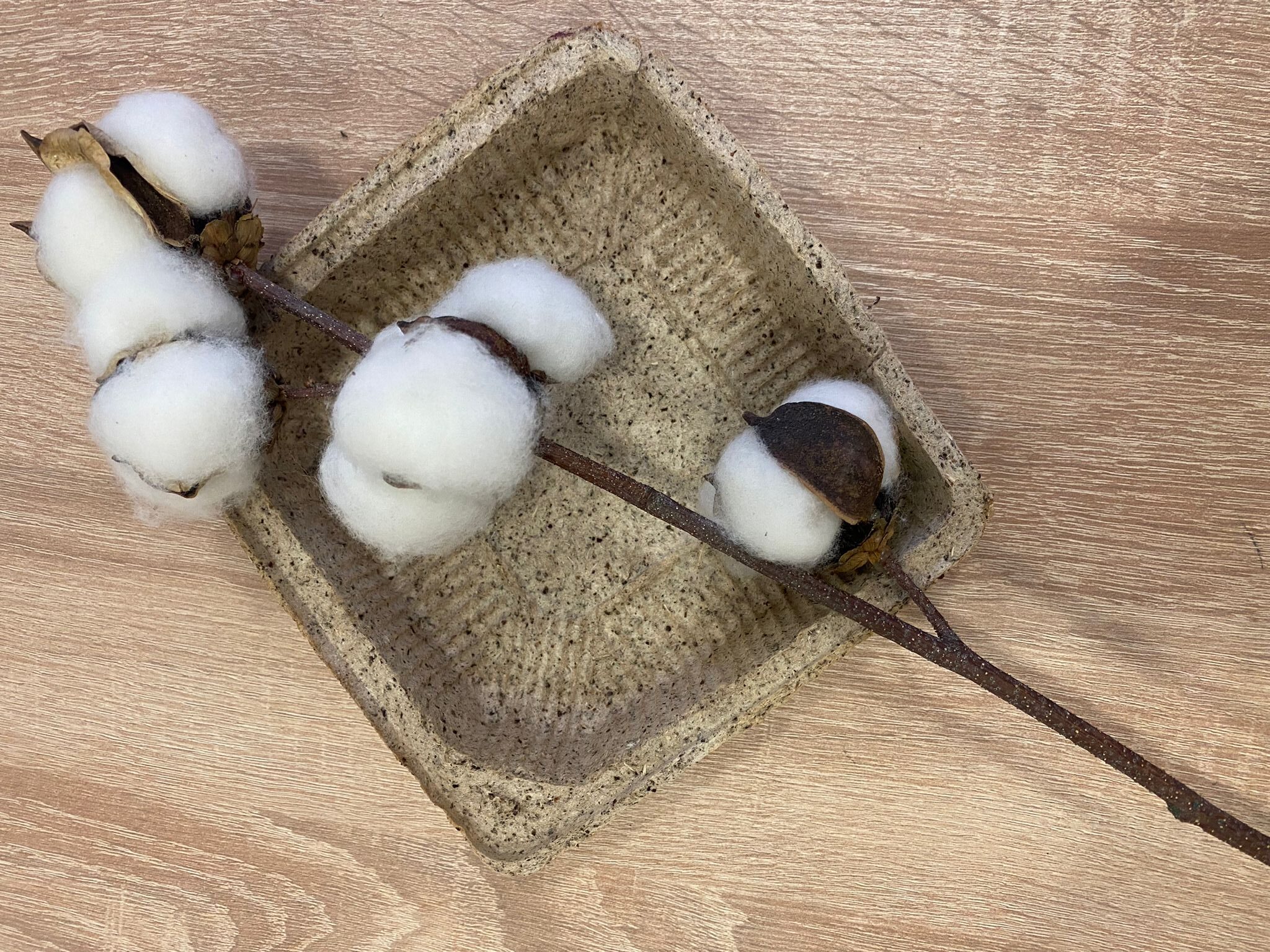

“We don’t see any limitations for this business. We can generate the demand we need, and reach any production level for packaging each year because we’re making a product that is highly needed”
Savings come from the cost of the cotton waste used to make it being 50% cheaper than plastic, and the efficient production method, which uses less water and energy. “We have talked with managers from food market chains, and producers of fruit and vegetables and they are interested in our packaging because our price is better,” says Rovner.
The other 80% of R.Com’s output will be sold to German retailer Aspro Group, with whom it has a deal to supply 30 million units of Co-Pack packaging a year. R.Com has also reached a preliminary agreement with a cotton waste supplier, who will provide 470 tonnes a year. The waste cotton is substantially cheaper than waste paper that can also be used to make packaging, at USD 100/tonne compared with USD 182/tonne respectively.
R.Com has a strong gender focus, with more than 75% of its employees being female, both in production roles and also three out of four of the management team. This is a strong achievement in Moldova, where only 35% of women are employed, compared with 46% for men, and where women are disproportionately employed in rural and informal economies, according to the UN Development Programme [3].
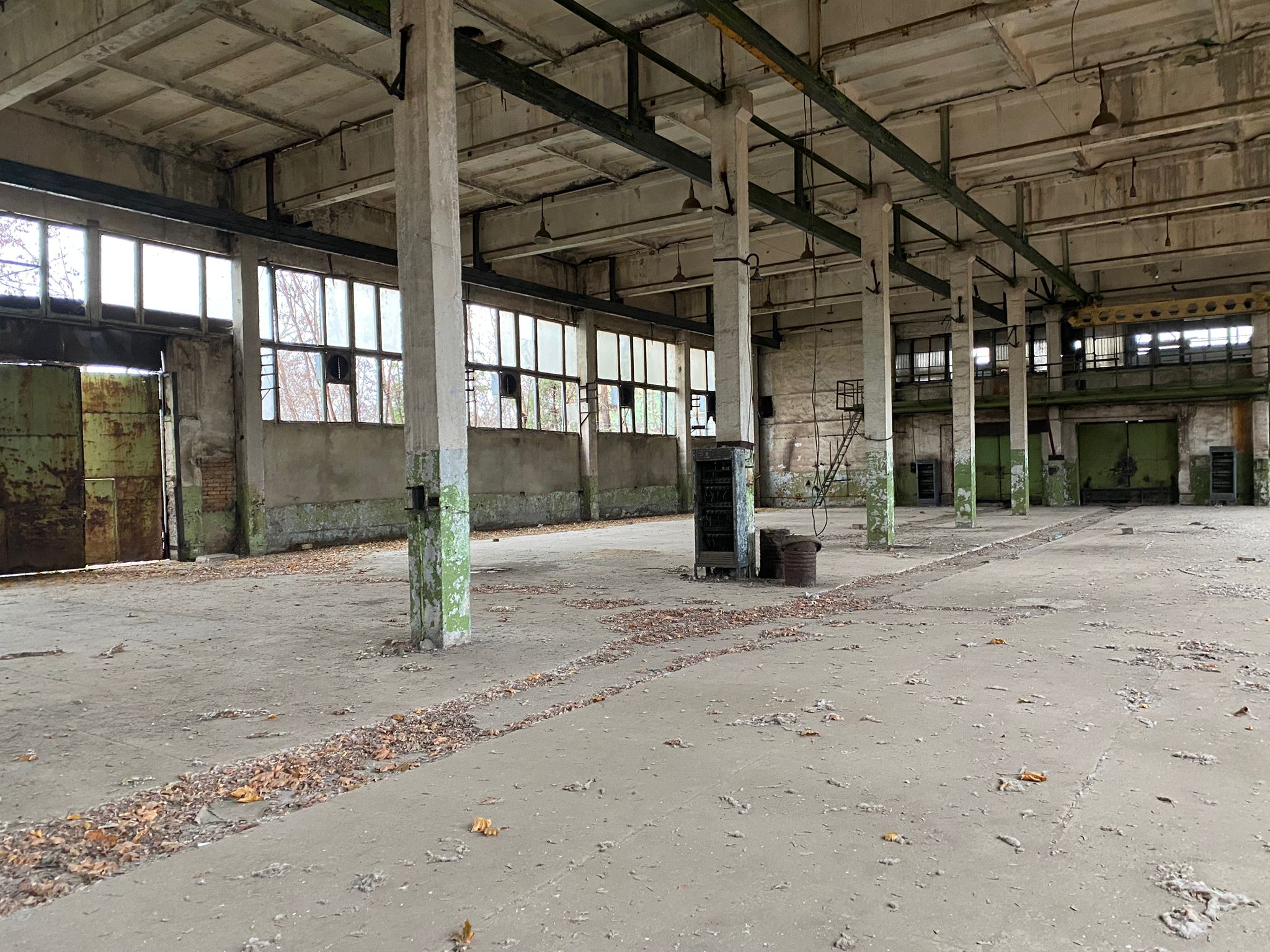
In its business plan, R.Com will provide 30% of the USD 1,652,489 project cost itself. It is looking for an investor for the remainder. PFAN has supported R.Com in developing a strong business plan and making it understandable for international investors.
It then helped it to pitch the idea to an investors’ platform, after which the company signed an agreement with an investor from the US. However, the investment climate in Eastern Europe has recently become challenging, and R.Com is waiting for clarification as to whether the loan it provisionally agreed last year will go ahead.
Nevertheless, it is pushing ahead with construction of the factory, which is expected to begin operations in 2024, with packaging ready for sale in 2026. By 2026, Rovner is anticipating revenue from sales of USD 1,261,485 and EBITDA USD 463,111.
“We don’t see any limitations for this business. We can generate the demand we need, and reach any production level for packaging each year because we’re making a product that is highly needed,” says Rovner.
“The PFAN project has helped me formulate and systematise my commercial idea. With the assistance of PFAN Advisor, Vasily Vovchak, the project documents were professionally prepared. Vasily helped me correctly emphasize the aspects that investment funds evaluate. I am very grateful to PFAN, especially to Vasily Vovchak, for their support in my project activities. I would also like to express my gratitude to PFAN, specifically to Petro Komarov [PFAN Regional Coordinator], for supporting my project by providing opportunities to present it at various venues in Moldova, such as exhibitions, conferences and other events”, Rovner expressed.
[1] https://globaljournals.org/GJRE_Volume21/1-Environmental-and-Waste-Management.pdf
[2] https://www.undp.org/moldova/publications/study-plastic-waste-republic-moldova
